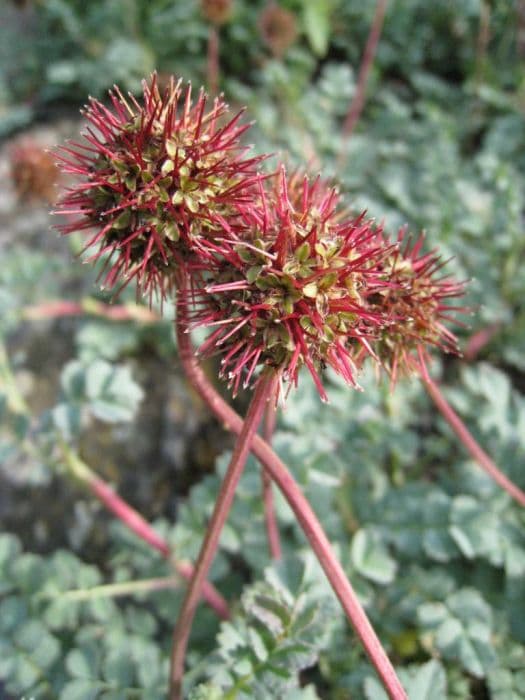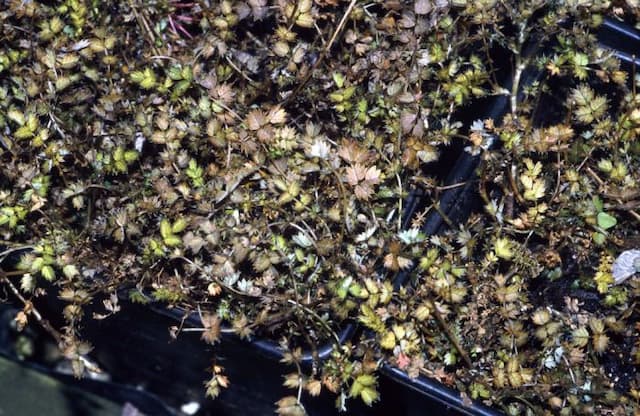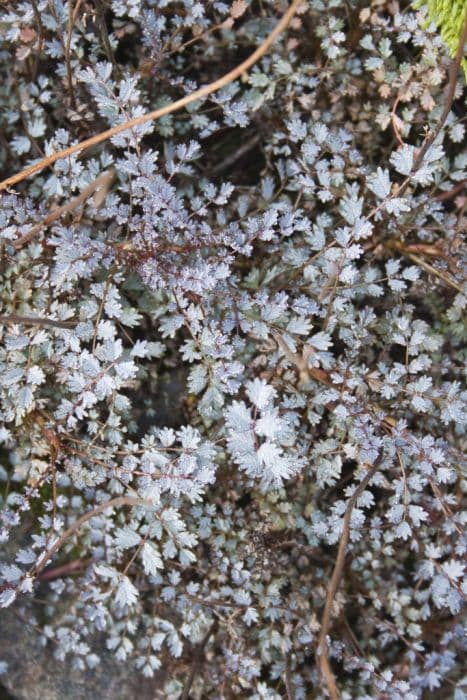Peach 'Garden Lady' Prunus persica 'Garden Lady' (F)

ABOUT
'Garden Lady' is a naturally dwarf peach well-suited to container cultivation. Pretty pink flowers in early spring are followed in late summer by sweet, juicy, yellow-fleshed, red- and yellow-skinned fruit. It is self-fertile and fruits from an early age
About this plant
 Names
NamesSynonyms
Garden Lady Peach
Common names
Prunus persica 'Garden Lady' (F).
 Characteristics
CharacteristicsLife cycle
Perennials
Foliage type
Deciduous
Color of leaves
Green
Flower color
Pink
Height
5 feet (1.5 meters)
Spread
4 feet (1.2 meters)
Plant type
Tree
Hardiness zones
5
Native area
China
Benefits
 General Benefits
General Benefits- Aesthetic Appeal: Adds vibrant color and visual interest to gardens with its attractive flowers and fruit.
- Edible Fruits: Produces peaches that can be eaten fresh, cooked, or used in various culinary recipes.
- Shade Provider: Offers shade once mature, creating a cooler microclimate in garden areas.
- Pollinator Attraction: Blossoms attract bees and other pollinators, supporting local ecosystems.
- Compact Growth: Well-suited for small gardens or limited spaces due to its relatively small size.
- Seasonal Interest: Provides a succession of decorative features throughout the growing season, including blossoms and foliage.
 Medical Properties
Medical Properties- Antioxidant - The peach, which includes the variety 'Garden Lady' (F), contains vitamins A and C along with other antioxidants that may help in neutralizing free radicals in the body.
- Anti-inflammatory - Peaches possess anti-inflammatory properties which might be beneficial in reducing inflammation in the body.
- Digestive Aid - Dietary fiber in peaches may contribute to digestive health by aiding in the prevention of constipation and supporting a healthy digestive tract.
- Cardioprotective - Some studies suggest that the compounds found in peaches could be associated with supporting heart health, though direct benefits from 'Garden Lady' (F) are not specifically studied.
 Air-purifying Qualities
Air-purifying QualitiesThis plant is not specifically known for air purifying qualities.
 Other Uses
Other Uses- The leaves of the Peach tree can be used in the fermentation process of kombucha as a flavor ingredient, imparting a fruity note to the beverage.
- Peach wood can be utilized in woodworking to create decorative objects or inlay work, due to its fine grain and warm color.
- The blossoms can be infused in vinegars, giving them a delicate floral flavor that can be used in salad dressings and marinades.
- Peach tree leaves can be incorporated into natural dye processes, giving fabrics and materials a range of yellow and green hues.
- Peach pits are often used as an abrasive in exfoliating scrubs and could be ground up for this purpose in homemade skin care products.
- The wood of Peach trees can be carved into smoking chips to impart a sweet, fruity flavor to meats during the smoking process.
- Edible landscaping is another use, where the Peach trees provide aesthetic beauty to a garden while also yielding fruit.
- Dried Peach blossoms can be used in potpourri to add a sweet aroma to indoor spaces.
- Peach tree branches can be fashioned into wreaths and other decorative items, sometimes even used for their symbolism of longevity and renewal in certain cultures.
- In some traditions, Peach branches are used as charms to ward off evil spirits, particularly when placed over doorways.
Interesting Facts
 Feng Shui
Feng ShuiThe Peach Tree is not used in Feng Shui practice.
 Zodiac Sign Compitability
Zodiac Sign CompitabilityThe Peach Tree is not used in astrology practice.
 Plant Symbolism
Plant Symbolism- Longevity - The peach tree is often associated with longevity and immortality in cultures such as Chinese, owing to the longevity of the tree itself and the enduring qualities of the fruit.
- Renewal and rejuvenation - As peach trees blossom in the early spring, they have become symbols of the renewal of nature and the promise of growth and rejuvenation.
- Femininity and beauty - The delicate blossoms of the peach tree have been connected with feminine beauty and softness, possibly reflected in the 'Garden Lady' moniker.
- Love and romance - In some traditions, the peach fruit symbolizes the heart and emotions, and thus can represent love and romantic desire.
- Abundance and fertility - Peaches, being a fruit-bearing tree, often symbolize fertility, and their bounty is associated with abundance and prosperity.
 Water
WaterPeach trees, including the 'Garden Lady' dwarf variety, should be watered deeply and thoroughly to encourage deep root growth. Generally, watering should be done every 7 to 10 days during the growing season, ensuring that the tree receives about 36-48 ounces of water each time. The amount might need to be increased during extremely hot or dry weather. In winter, reduce the frequency as the tree requires less water while it is dormant. It's essential to avoid overwatering, as this can lead to root rot.
 Light
LightPeach trees like 'Garden Lady' require full sun to produce the best fruit and maintain healthy growth. They should be planted in a spot where they can receive at least six to eight hours of direct sunlight each day. The ideal location is a south-facing spot that is open and free from shade cast by buildings or taller trees.
 Temperature
TemperaturePeach trees, including 'Garden Lady', thrive in temperatures ranging from 75 to 85 degrees Fahrenheit during the growing season. They can tolerate winter chill down to about -10 degrees Fahrenheit, but it's crucial to protect them from late spring frosts which can damage blossoms and reduce fruit set. The peach tree needs a certain number of chill hours, between 32 and 45 degrees Fahrenheit, during the dormant season to ensure proper flowering and growth in the spring.
 Pruning
PruningPruning the 'Garden Lady' peach tree is vital for maintaining its size, shape, and to ensure good fruit production. The best time for pruning is early spring before the tree breaks dormancy. It should be pruned annually to remove dead or diseased wood, to thin out crowded branches, and to shape the tree. Proper pruning also improves air circulation, which reduces the risk of fungal diseases.
 Cleaning
CleaningAs needed
 Soil
SoilPeach trees, including the 'Garden Lady' variety, thrive in well-draining soil with a pH ranging from 6.0 to 7.0. A good soil mix for planting peaches could include equal parts of loam, aged compost, and sand or perlite to ensure adequate drainage. Incorporate a balanced slow-release fertilizer prior to planting to support initial growth.
 Repotting
RepottingTypically, peach trees like 'Garden Lady' are planted permanently in the ground rather than being repotted. However, if grown in containers, young trees may require repotting every 2-3 years to provide room for growth and to refresh the soil.
 Humidity & Misting
Humidity & MistingPeach trees, such as the 'Garden Lady', are adaptable to a range of humidity conditions but prefer moderate humidity levels. They do not require particularly high humidity and can tolerate the average outdoor ambient humidity in most growing regions.
 Suitable locations
Suitable locationsIndoor
Place in sunny spot, ensure large container, moderate humidity.
Outdoor
Full sun, protect from strong winds, well-drained soil, regular watering.
Hardiness zone
5-9 USDA
 Life cycle
Life cycleThe life of the Peach 'Garden Lady' (F) begins with germination when the seed is planted in well-draining soil and exposed to warmth and moisture. After the seedling emerges, it grows into a juvenile plant, developing a sturdy root system and foliage. This is followed by the maturation phase where it develops a strong structure and can start to produce flowers. Once mature, the tree enters its reproductive stage, flowering in the spring with pink blossoms that, when pollinated, will produce peaches in the summer. Following fruit production, the tree enters a period of dormancy during the cooler fall and winter months. This cycle of flowering, fruiting, and dormancy repeats annually throughout the peach tree's life, which can span several decades with proper care.
 Propogation
PropogationPropogation time
Spring-Early Summer
The popular method for propagating the Peach 'Garden Lady' is by grafting, which is generally carried out in late winter or early spring before the new growth begins. In grafting, a healthy scion of the 'Garden Lady' peach is selected, which is a young shoot with several buds on it. This scion is then carefully attached to a rootstock, which is usually selected from a compatible peach variety that offers disease resistance and hardiness. The cut surfaces of both scion and rootstock are joined together and bound with grafting tape to promote the two pieces to grow together. Once the graft has taken and new growth is evident, which usually takes a few weeks, the binding can be removed. This technique relies on precise cuts and tight sealing to ensure that the vascular tissues of the scion and rootstock align for successful grafting.









